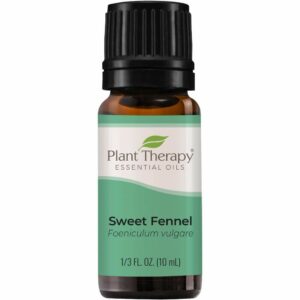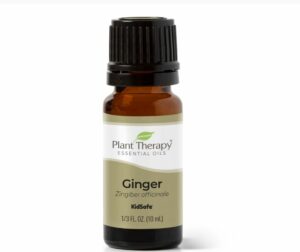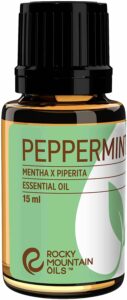Overview
Heartburn is caused by acid reflux, which occurs when stomach acid and bile rise to the esophagus. Symptoms of heartburn can include a burning sensation in the chest and throat, bitter or acidic taste in your mouth, a discomfort that worsens when you lie down, and even chest pain. Causes of heartburn can include foods and drinks like coffee, alcohol, spicy food and tomatoes, pregnancy, anxiety and stress, and being overweight.
Occasional heartburn and indigestion are expected from time to time, especially if you’ve eaten highly acidic foods. Chronic heartburn or having more than two episodes a week may indicate a medical condition known as gastroesophageal reflux disease (GERD) or even the presence of H. pylori, a dangerous bacterial infection in the stomach. If you’re experiencing chronic heartburn, consult with your healthcare provider to rule out any underlying health or digestive issues.
Over-the-counter or prescription medication and antacids are often used to manage heartburn symptoms, although these often act more like a band-aid rather than address root causes. Studies suggest that prolonged usage of heartburn medications may also be linked to an increased risk of premature death from heart disease, kidney failure, or stomach cancer. (1)
If you’re looking for a more natural approach for the occasional heartburn episode, then the use of essential oils and aromatherapy may be a solution for you.
Essential Oils As Natural Remedies
Essential oils (EOs) are highly concentrated plant extracts containing active compounds known to help support the body’s healing mechanisms.
They’ve been used for centuries as natural remedies and alternative medicine, and now increasing amounts of research are pointing to EOs’ medicinal and therapeutic health benefits for various health issues:
Immunity & Colds
- Boosting immunity
- Decreasing inflammation
- Treating colds and coughs
- Sinus infections
- Sore throats
- Cold sores
Skin Conditions
- Soothing eczema
- Psoriasis relief
- Shingles
- Treating warts
- Healing bug bites
- Helping sunburns and skin burns
- Skincare
- Anti-aging
- Acne
Inflammatory Conditions & Pain
- Soothing arthritis symptoms
- Relieving pain and discomfort
- Muscle pain
- Foot pain
- Addressing allergy symptoms
- Tennis elbow
Mental Health
- Stress & anxiety
- Depression
- Insomnia
The Four Best Essential Oils For Heartburn Relief
The following four EOs can act as digestive system support for nausea, bloating, acid reflux, and constipation.
Fennel oil




Fennel is an effective digestive aid that can balance pH levels in the stomach while reducing colic pain, bloating, and gas.
Ginger oil



Ginger essential oil is a potent anti-inflammatory that can help address acid reflux symptoms and bloating by reducing acid production. In Ayurvedic medicine, ginger is used to address intestinal and liver issues, gas, upset stomach, and anemia. You can also use the fresh root to make a soothing cup of ginger tea.
Peppermint oil
Peppermint essential oil offers a cooling sensation thanks to menthol, one of the main active compounds. It serves as an anti-nausea digestive aid that can help relax digestive muscles and soothe discomfort.
Lemon oil


Lemon essential oil is a potent antibacterial agent that helps to kill off bad bacteria. It can also help to balance digestive acid levels in the gut.
How To Use Essential Oils For Heartburn
EOs are generally used topically. Always dilute your EOs in a carrier oil like coconut oil before applying them directly to your skin. Stick to 2-3 drops of EO per 1 teaspoon of carrier oil.
You can also use a diffuser to disperse the oils into the air. Inhaling EOs is an effective way to address many health concerns like anxiety and respiratory conditions. Still, for heartburn relief, the most direct and effective method is the safe ingestion of oils.
Orally ingesting oils seems to be a source of controversy amongst the EO community. Some claim that it simply isn’t safe to ingest EOs. Others say that it’s okay to take EOs orally as long as they are used safely and with a knowledgeable health professional’s direct supervision. And others believe that if you do your due diligence, research every high-quality EO you’re looking to ingest, and are aware of the contraindications, you can proceed with caution and use the oils for internal purposes.
The U.S. Food and Drug Administration (FDA) created a comprehensive list of EOs that are considered ‘generally recognized as safe’ (GRAS) for ingestion provided the oils are undiluted, solvent-free, and consumed in an appropriate quantity and as described. (2) This list is not exhaustive.
The FDA doesn’t regulate EOs, so it’s on you to do your research and make up your own decisions when purchasing any oil. It’s essential to keep in mind that EOs are potent concentrated natural oils derived from plant material. These oils contain hundreds of active compounds that can influence the body’s function. They must be treated with care and respect, and caution.
Make sure that the oils you’re ingesting are clearly listed as supplement grade.
Safety Concerns
When essential oils are used safely and mindfully, they typically offer little to no harmful side effects.
Always choose high-quality, preferably organic, therapeutic-grade products that have not been diluted or contaminated. Look for food or supplement grade brands that explicitly indicate they’re safe for consumption.
Essential oil blends can be particularly useful because mixing EOs often amplifies the healing effects.
Make sure you’re aware of the contraindications for each oil you’ll use. Some oils aren’t suitable for babies, young children, pregnant and nursing women, and high blood pressure or epilepsy.
If you experience any adverse reaction while using any oil, discontinue use immediately.
Heartburn Rx Essential Oil Blend: Alkaline Elixir
You can use this EO blend two ways:
Capsule form
Use an empty vegetable capsule and fill it with the following:
- 1 drop of lemon oil
- 1 drop of ginger oil
- 1 drop of peppermint oil
- MCT oil or olive oil
Gulp it down with a big glass of room temperature or warm water.
Alkaline Elixir
Add the following to a 250-300ml glass of water:
- ½ teaspoon of bicarbonate or aluminum-free baking soda
- 1 tablespoon of apple cider vinegar
- Juice of 1 or ½ a fresh organic lemon
- 1 drop of lemon oil
- 1 drop of ginger oil
- 1 drop of peppermint oil
Mix everything with a spoon and drink the entire glass.
*Only use food or supplement grade essential oils marked as safe for internal use.
You can also address acid reflux with herbal teas like peppermint and fennel.
REFERENCES
:
(1) https://www.webmd.com/heartburn-gerd/news/20190606/heartburn-drugs-again-tied-to-fatal-risks#1
(2) https://www.accessdata.fda.gov/scripts/cdrh/cfdocs/cfcfr/CFRSearch.cfm?fr=182.20













